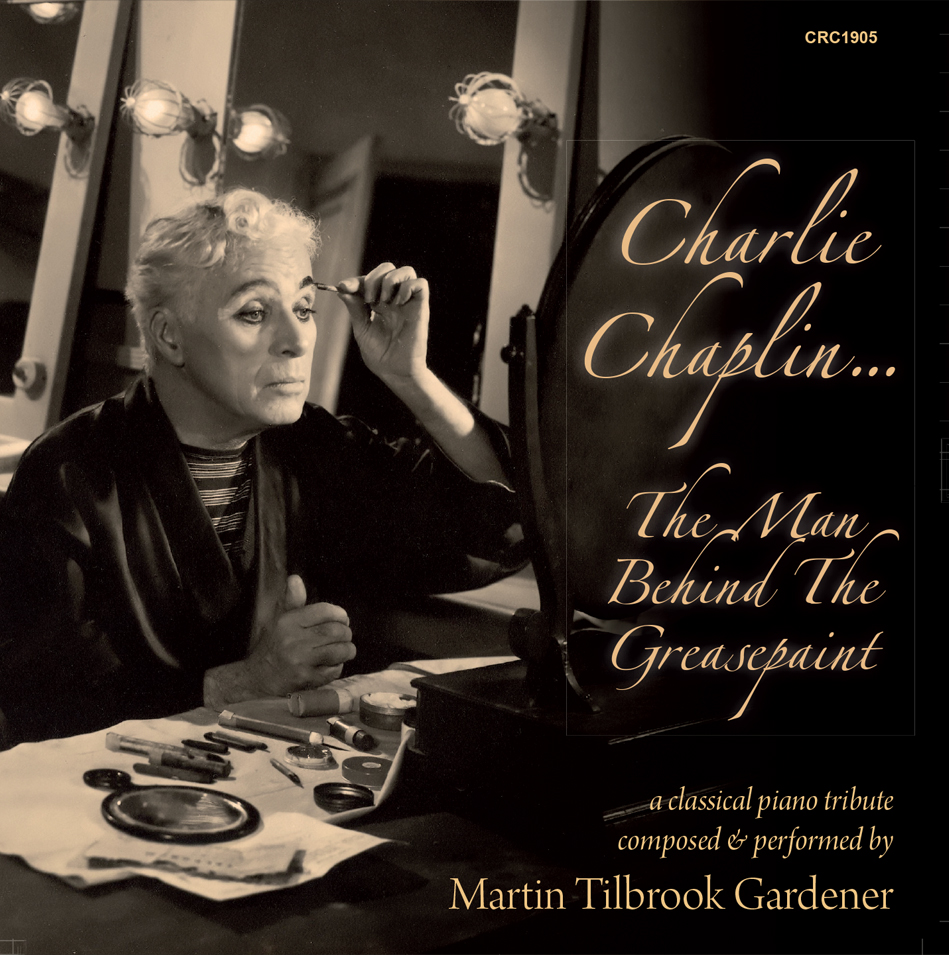
Charlie Chaplin The Man Behind The Greasepaint
A Classical Piano Tribute
"Charles Spencer Chaplin, man of visions, dreamer of dreams and believer in special providences, trod a most romantic and adventurous path through life.
Spiced with a certain wild recklessness and tempered with an honest, tender simplicity that came straight from the heart, his films moved millions to laughter and tears.
His presence on screen immediately brings a mixture of real life and magic to the scene, as his impertinent comedy invades and inextricabl, mingles with the grim realities of life in a unique performance.
There is no-one quite like
Charlie Chaplin..."
01 Snowdrops
02 An English Man In vevey
03 Cinderella Waltz
04 Edna
05 Heartbroken (with Steve Bingham - violin)
06 For The Love Of A Blind Girl
07 Auschwitz
08 Covent Garden Sunrise (with Steve Bingham - violin)
09 Reproach
10 Old Photos
11 Charlie & Oona
12 Prelude To Tears (with Steve Bingham - violin)
13 The Sound Of Shadows
14 Behind The Greasepaint (with Steve Bingham - violin)
15 Old Haunts
01 - Snowdrops
Schooled in life by the taskmasters 'Hardship' and 'Poverty, it was an achievement for the unknown, penniless Charlie to even survive his formative years in the wild bustle of 1890's South London. Like one of the snowdrops in my first track, Charlie was a delicate little flower, yet surprisingly tough and resilient. He emerged from the hard, frost-bitten slums of Lambeth and against all odds, stepped bravely forward to become one of the most distinguished, admired and revered men in the whole world - an honoured guest of statesmen, princes and kings.
One of the many delights in my life, and an exquisite source of inspiration for this music, was to come quite unexpectedly upon a breathtaking abundance of snowdrops deep in a quiet Devon wood; delicate, sensitive and cheerful, these delightful little flowers are the true harbingers of Spring and symbolise all the hope and happiness it brings - surely a picture of the little boy Charlie if ever there was one.
02 - An English Man In vevey
The shores at the Vevey end of Lake Geneva have a pictorial and poetical interest which irresistibly interweaves itself around my imagination. Beautiful scenes of Vevey and the surrounding neighbourhood abide in my memory; by the fire on winter nights, I sometimes find myself revisiting these delightful enchantments that captivated and filled my soul on those summer days by Lake Geneva a few years ago.
The blue waters, picturesque streets, charming gardens, quaint churches, the broad quay and distant snowy top of Mont Blanc rise vividly before my eyes at the remembrance of Vevey, nearby Clarens and the chillingly tragic Chillon, immortalised by the pen of Byron. No wonder, when Charlie moved to the Manoir de Ban in Vevey, he wrote:
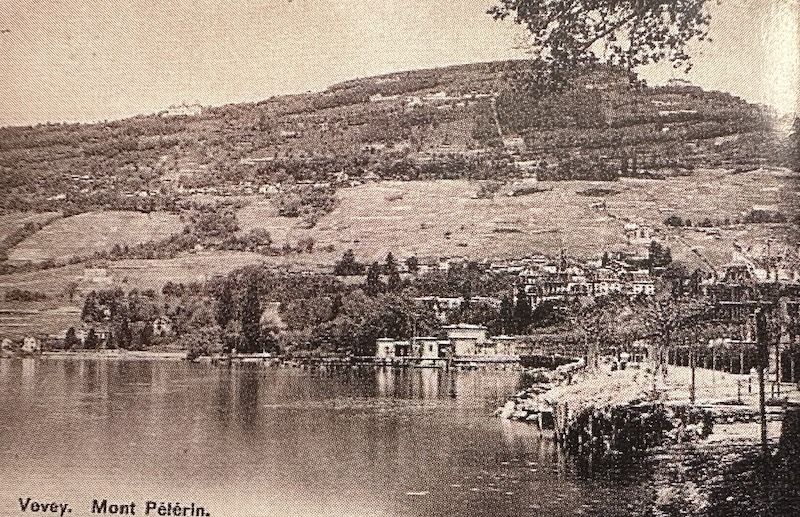
"With such happiness, I sometimes sit out on our terrace at sunset and look over a vast green lawn to the lake in the distance, and beyond the lake to the reassuring mountains, and in this mood think of nothing but enjoy their magnificent serenity."
Charles Chaplin
03 - Cinderella Waltz
During one of Charlie's more settled experiences of school, he hoped for a part in its production, Cinderella, but was overlooked. He remembers:
"How I would have loved to play one of the Ugly Sisters, with the tutoring Mother could have given me! I was, however, captivated by the girl who played Cinderella. She was beautiful, refined, aged about fourteen, and I was secretly in love with her. But she was beyond my reach both socially and in years."
The wistful innocence of Charlie's hopeless stirrings of love are expressed in the first section of Cinderella's Waltz, but suddenly, the tempo changes and he steps into his own dream to become the dashing, handsome Prince Charming, who takes Cinderella in his arms and whirls her around a magnificent glittering ballroom. This fairy-tale dream is expressed in a composition style that honours Chopin, a composer I have always revered.
Unfortunately for Charlie, his exquisite romantic reverie bursts like a child's soapy bubble when he realises Cinderella has gone home for her tea. Left alone, his sole companions are a rather apologetic pair of frowsy old boots yawning and budding through the toes - a far cry from Cinderella's dainty glass slippers. I like to think that after such rapturous thoughts, young Charlie philosophically pulls on his old boots, but casts one final glance around, just in case there's a little magic left somewhere...
04 - Edna
Edna Purviance, a timid girl with all the softness of a pastel painting, is Charlies active helpmeet in his early films, where we find him unceremoniously scrubbing her face, ears and hair, rescuing her from drowning in the sea under a pier, tumbling together backwards off a tree and generally falling in love with her. Edna, as Charlie's first leading lady, contrasted and complimented the shabby Little Tramp, highlighting through her shy femininity and girlish ways the noble sentiments beating beneath his threadbare jacket.
But for the unyielding pallidity of old black and white films, we may have glimpsed greater depths of the sweet-faced Edna as Charlie saw her - the shy colourful flush to cheeks that gently ebbed and flowed with emotion, the coming and going smile, the soft light brimming in her eyes like a fountain - all these enraptured Charlie, and although he and Edna never married, she was kept on his payroll for life.
"... she was more than pretty, she was beautiful... quiet and reserved, with beautiful large eyes, beautiful teeth and a sensitive mouth... in 1916 we were inseparable."
Charles Chaplin
05 - HeartBroken
"Many a word at random spoken
May soothe or wound a heart that's broken."
Sir Walter Scott
In his silent films, Charlie went beyond words, breaking through language and cultural barriers to embrace the human spirit with his unashamedly sentimental feelings. In moments such as the closing scenes of The Circus, he touches the hearts of millions in his expression of tragic hopelessness. It is this inner reality from Charlie's own experiences that moved me to bring the violin, an instrument Charlie loved, into this piece, highlighting with passionate and exquisite delicacy the feeling that our very heart strings are being played...
06 - For The Love Of The Blind Girl
I find the intensity of emotion in the last scene of City Lights almost unbearable my opinion it is one of the great moments of cinema; so many of Charlie's perso experiences are distilled into that touching encounter.
Now, although the flower is long dead, its scent is still as sweet as ever.
07 - Auschwitz
When I wrote this music, I saw Charlie sitting alone, absobing with disbelief the true horrors of Auschwitz: the rounding-up of innocent Jews crushed into trains, the inhumanity, brutality, hatred - and in the middle of it all, an encouraging smile of a mother trying to be brave with her little ones, a husband giving his wife a reassuring look, and the eyes of an innocent child, gazing up trustingly into the faces of her murderers...
I see the opening theme as a tragic dance, almost in slow motion, leading to the frenzied violence of systematic, ruthless mass murder as train after train of agonized human cargo faces a hideous death.
The two sforzando chords crash with outrage against the enormity of such base evil; we are left with the pitiful legacy of mountains of spectacles, human hair, teeth and shoes, many of them little children's. They all tell their own story of appalling horror. No wonder Charlie said:
"Had I known of the actual horrors of the German concentration camps, I could not have made The Great Dictator..."
08 - Covent Garden Sunrise
After his father's early and tragic death from alcohol poisoning in 1901, Charlie wore a black crepe arm-band; always hungry, he decided to put the emblem of grief to good use. Buying cheap flowers at dawn in the Covent Garden flower market, he sold them as posies at a good profit in public houses. Despite the welcome relief from pecuniary hardship, this enterprise ended abruptly with a scolding from his mother for hanging around the very bars where his father had drunk himself to death.
The music captures day-break at Covent Garden flower market with its sights, sounds and fresh morning fragrances mingled with Charlie's hopes as he moves amongst the shadowy figures to purchase his precious stock of narcissi. I imagine his small insignificant figure stopping for a moment to inhale the spring freshness of his flowers and drink in the first blush of dawn with its promise of a new day...
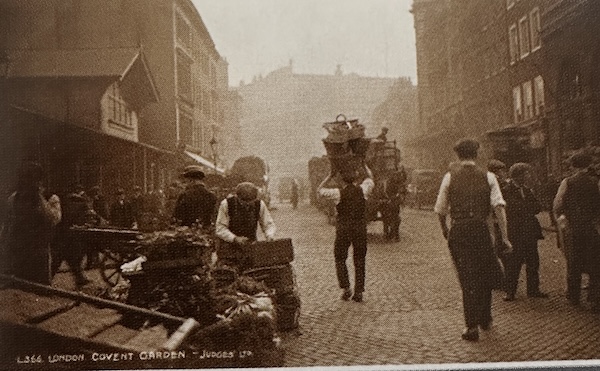
09 - Reproach
A look, a gesture, a flickering movement of the body or just a few quiet words...
"If only you had given me a cup of tea that afternoon, I would have been all right."
These words were murmured to Charlie by his mother, Hannah, when he went with brother Sydney to see her in Cane Hill. Hannah was referring to the unbearably hot summer afternoon when she suffered a complete physical and mental collapse from the strain of living in dire poverty and grieving for her missing son, Sydney. It was left to young Charlie alone to support her as she staggered through the streets to the Infirmary, from where she was later sent to Cane Hill Lunatic Asylum. Her words of reproach haunted Charlie for days - indeed years - for he recalls them with touching sadness in his book My Autobiography.
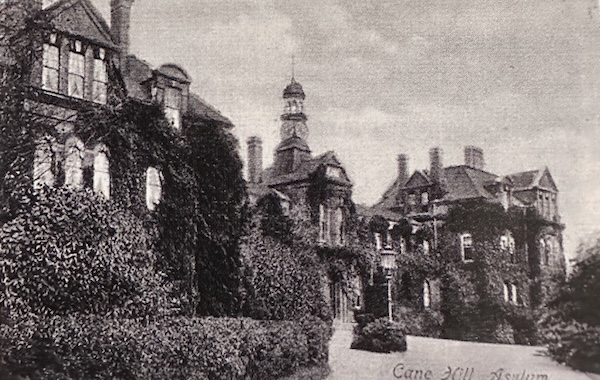
10 - Old Photos
Inspiration for this piece came from browsing through Charlie's wonderful and absorbing book My Life in Pictures.
I imagine Charlie, in an effort to compile this book, sorting through piles of old photographs in his study at the Manoir de Ban and pausing as he comes across a forgotten face or place.
Taking off his glasses, he absently puts them down on his desk, and gazes into the mists of memories, as remembrances come flooding back to him, raising a smile, and perhaps, a tear...
11 - Charlie & Oona
"For the last twenty years I have known what happiness means. I have the good fortune to be married to a wonderful wife. I wish I could write more about this, but it involves love, and perfect love is the most beautiful of all frustrations because it is more than one can express. As I live with Oona, the depth of beauty of her character are a continual revelation to me. Even as she walks ahead of me along the narrow sidewalks of Vevey with simple dignity, her neat little figure straight, her dark hair smoothed back showing a few silver threads, a sudden wave of love and admiration comes over me for all that she is - and a lump comes into my throat."
Charles Chaplin
I deliberately chose to compose this piece in the style of Chopin, the master of Romantic piano.
12 - Prelude To Tears
"I was playing in a picture called 'The New Janitor,' in a scene in which the manager of the office fires me. In pleading with him to take pity on me and let me retain my job, I started to pantomime appealingly that I had a large family of little children. Although I was enacting mock sentiment, Dorothy Davenport, an old actress, was on the sidelines watching the scene, and during rehearsal I looked up and to my surprise found her in tears. "I know it's supposed to be funny," she said, "but you just make me weep." She confirmed something I already felt: I had the ability to evoke tears as well as laughter."
Charles Chaplin
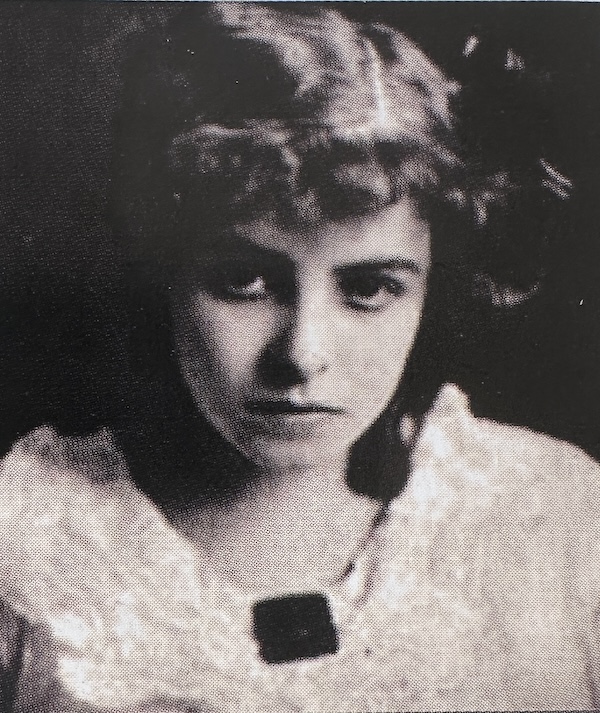
13 - The Sound Of Shadows
"There are more kicks than halfpence in this world for a poor man."
An old Victorian expression
Throughout his life, Charlie often peered through the veils of yesterday, allowing his thoughts to wander amongst memories, both bitter and honeyed, stimulating some of his greatest cinematic moments. As The Little Tramp, Charlie knew what it was like to sleep rough, to be cold, hungry and alone; I've never seen anyone curl up to sleep on a doorstep with such familiarity as Charlie, fight and scramble for work, or scavenge with style and verve. As we see Charlie scrimp and scrape a few pence together on screen, we see another Charlie from another time, experiencing real-life poverty, the fear of which never left him and like shadows, haunted his dreams.
14 - Behind The Greasepaints
In his early days on stage with Casey's Circus and Fred Karno, Charlie would almost certainly have come across the methods described in Cavendish Morton's popular book, The Art of Theatrical Make-up, published in 1909:
"Most professional clowns cover their faces with a mixture of pure oxide of zinc and lard, and then powder thickly with dry oxide of zinc. The lips are painted with carmine. The eyes are outlined with black, and the eyebrows are definitely drawn. A spot of carmine is placed at the inner corner of each eye."
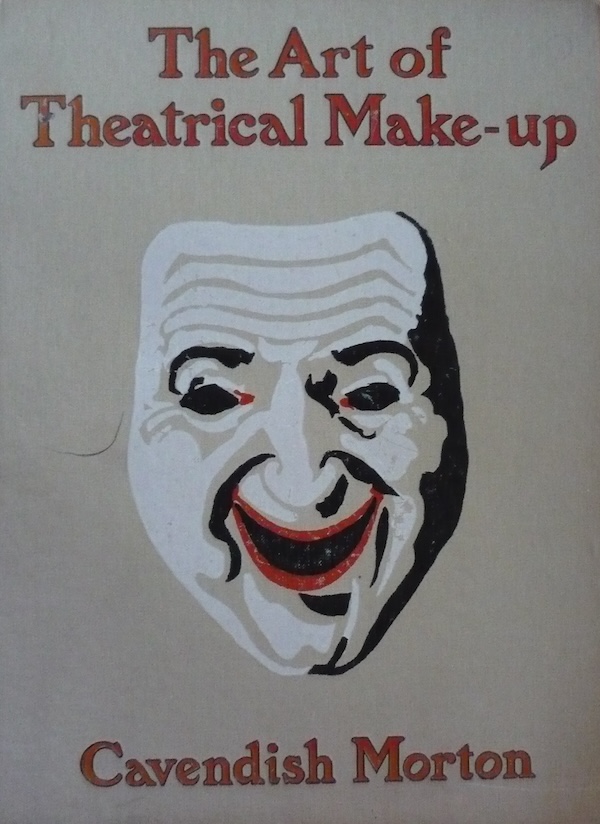
Not content with mere practical advice, Cavendish goes on to describe the ultimate clown, Pierrot, as:
"The symbol of all things theatrical. The utterly impersonal medium for dramatic expression. The mask of white destroys the distinctions of colour, race, or station. He may be emotionally, all things to all men."
Cavendish Morton
15 - Old Haunts
Something I share with Charlie is the need to re-visit old familiar places. In this improvisation, I allowed the music to wash over me, as I was transported, like Charlie, to my old haunts of South London. As Charlie arrives at his old haunts, he describes his feelings when he stops the taxi a little before 3 Pownall Terrace...
"A strange calm came over me as I walked towards the house. I stood a moment, taking in the scene. 3 Pownall Terrace! There it was, looking like a gaunt old skull. I looked up at the two top windows - the garret where Mother had sat, weak and under-nourished, losing her mind. The windows were closed tight. They were telling no secrets... I walked towards the mews at the back of Kennington Road, where I used to help the wood-choppers. But the mews had been bricked in, the wood-choppers had gone...
Then on to 287 Kennington Road... I gazed up at the second-floor windows of the room that was so familiar with my childhood despair... Then on to Kennington Park... In spit of the years it still bloomed green with sadness...
As I wandered through Kennington... I had a feeling of slight uneasiness that perhaps those gentle streets of poverty still had the power to trap me in the quicksands of the hopelessness."
Charles Chaplin
 David Boland
David Boland